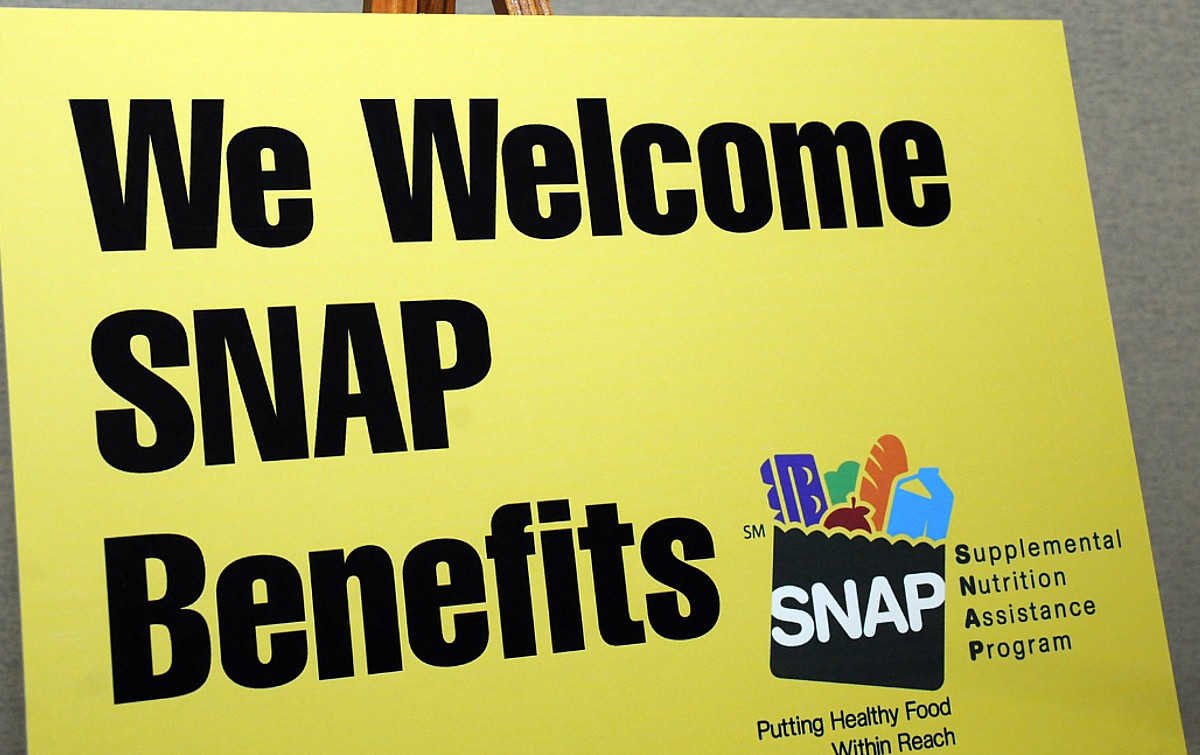
By Lindsay Street, Statehouse correspondent | Just when low-income workers might need a way to get food during the emerging coronavirus pandemic, the state agency charged with being their advocate might have its hands tied by state leaders.
A state budget proviso bars the S.C. Department of Social Service from seeking a federal waiver on 2015 workforce requirements for food stamps.
Low-income worker advocates say this lack of flexibility could cause people to go hungry in South Carolina if the pandemic continues to thrash the economy and workers lose hours. But a state senator countered that no one would go hungry so long as they prove they are looking for a job.
The S.C. House of Representatives this week passed its version of the state budget, which includes a renewal of the proviso. Federal policy requires able-bodied adults without dependents to work 20 hours per week to receive assistance under the Supplemental Nutrition Assistance Program (SNAP).
The state budget — and its accompanying provisos — now heads to the S.C. Senate, where senators will begin drafting their version in the coming weeks.
DSS staff released a statement to Statehouse Report this week saying that, “If South Carolina were to experience a widespread, long-term impact due to coronavirus, then we would expect an increase in the SNAP caseload.”
Meanwhile, it is unclear whether the governor could or would consider removing the proviso as part of his response to the spreading coronavirus because his office did not respond to a request to comment.
‘No fault of their own’
Low-income worker advocacy nonprofit S.C. Appleseed Legal Justice Center has sounded the alarm since the proviso was first proposed in the Senate in 2018. Director Sue Berkowitz said the coronavirus shows “why you should never do” workforce requirements for benefits or provisos limiting state response.

“We have to look at (the pandemic as) what kind of benefits and resources will be available to help people get through this,” she said, adding that contract employees, food and beverage workers, and other low-income or tip-based workers may fall below the threshold for benefits “through no fault of their own.”
The novel coronavirus, COVID-19, is now an official pandemic, according to the World Health Organization. As of Friday morning, South Carolina had 12 reported cases. World-wide, there have been 4,600 deaths linked to 125,000 cases. In the United States, there have been 41 deaths linked to more than 1,600 cases. South Carolina has not seen any reported coronavirus-related deaths so far.
Gov. Henry McMaster has requested $45 million from state surplus funds to go toward S.C. Department of Health and Environmental Control to help combat the virus. House Speaker Jay Lucas, R-Hartsville, and House Ways and Means Chairman Murrell Smith, R-Sumter, said Thursday they would support the governor’s call.
Concurrently, McMaster, Senate President Harvey Peeler, R-Gaffney, and other state leaders have said public meetings, schools, and businesses should continue business as usual.
A media liaison with the South Carolina Restaurant and Lodging Association said the group spoke with state officials and it feels the tourism industry will remain strong.
“We believe the virus’ impact will be minimized,” Lenza Jolley wrote in a statement to Statehouse Report, when asked how the organization expects the virus to impact low-wage or tip-based workers. She prefaced the statement with 81 percent of South Carolina’s tourism coming from car-driven transportation, rather than airlines.
Already public events across the state are being canceled or postponed, including a SCforEd teacher rally planned for March 24. S.C. Department of Parks, Recreation & Tourism communications director Dawn Dawson-House told The Greenville News that hotel occupancy rates have declined 5.4 percent in the first week in March.
“It’s really concerning (for people) living paycheck to paycheck,” Berkowitz said.
After the state’s 2015 floods, DSS implemented a “Disaster SNAP” program in 24 counties, and provided one-time grants to more than 179,000 impacted individuals to help them replace lost food and cover unreimbursed disaster expenses or temporary loss of income. An agency media liaison said in a statement to Statehouse Report that usually natural disasters only cause “short-term” impact on people, and thus, there is usually no “spike in requests” for SNAP.
DSS plans to preserve continuity of operations during a state of emergency or quarantine situation, and address an increase in caseloads, according to the statement.
‘It’s not a cruel proviso’
The proviso is already in effect through the 2019-2020 fiscal year, which ends June 30. Berkowitz said reversing the proviso would likely take an emergency declaration from the governor, but the governor’s office did not respond to comment requests this week.
The budget proviso limiting a workforce waiver states: “The Department of Social Services shall not seek, apply for, accept, or renew any waiver of the requirements established pursuant to 7 U.S.C. Section 2015(o), relating to the mandatory work requirements of the Supplemental Nutrition Assistance Program.”

Hopkins Democratic Rep. Wendy Brawley said she opposes the proviso, though no effort was made during the House budget deliberations to remove it. Now that it has passed through to the Senate, she said she would like to see it reversed.
“I’m hopeful that the leadership will recognize that housing and food is just as essential as the testing that needs to be done for coronavirus,” she said. “That proviso was unwise.”
Democratic Sen. Darrell Jackson, also of Hopkins, said he also opposes the proviso.
“I have every intention to look at it and bring it to the attention of my colleagues in Finance,” he said. Jackson serves on the Senate Finance Committee. “This whole SNAP proviso is something I’ve dealt with before and I will try to do again … I’m hoping the environment has changed because of this virus.”
Lexington Republican Sen. Katrina Shealy was one of a handful of Republicans who proposed adding the proviso to the 2018-2019 budget. She said she stands by her support.
“It’s not a cruel proviso; it just says you have to apply for a job somewhere,” Shealy said. “Whatever the federal law is, you have to be following that. It’s not anything unreasonable … People are reading more into this proviso than is out there.”
- Have a comment? Send to: feedback@statehousereport.com















 We Can Do Better, South Carolina!
We Can Do Better, South Carolina!
Pingback: Charleston Currents – 3/30: On printing masks; issuing the order; small business and the economy
Pingback: Charleston Currents – NEWS BRIEFS: City has weathered past scourges